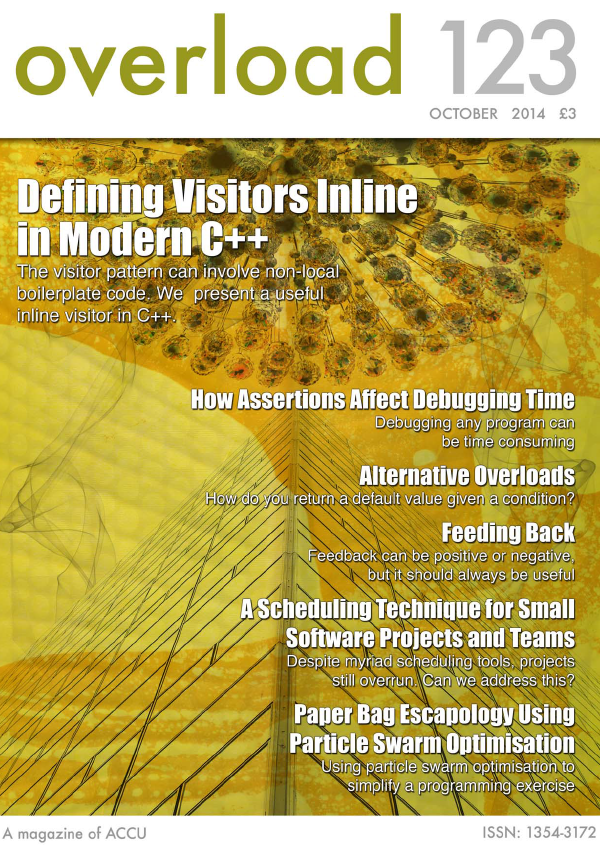Meeting C++ is sold out!
Last week the last ticket for Meeting C++ has been sold:
Meeting C++ is sold out for now
by Jens Weller
from the Article:
Ticket sales have been strong all summer long, and those who have yet not got their ticket will have to wait, maybe even for next year. There might be a second batch of tickets, which will not be more then 10-30 tickets released at the beginning of November. But for now, we are at almost 300 Attendees for Meeting C++! This includes the 50 Students, the speakers, the staff and all sold tickets.

 At CppCon last month, InformIT recorded this video interview. It has now been posted:
At CppCon last month, InformIT recorded this video interview. It has now been posted: 
 Fresh over the weekend, and
Fresh over the weekend, and  Overload 123 is now available. It contains the following C++-related articles, and more:
Overload 123 is now available. It contains the following C++-related articles, and more: New in Eric's series on ranges for C++:
New in Eric's series on ranges for C++: